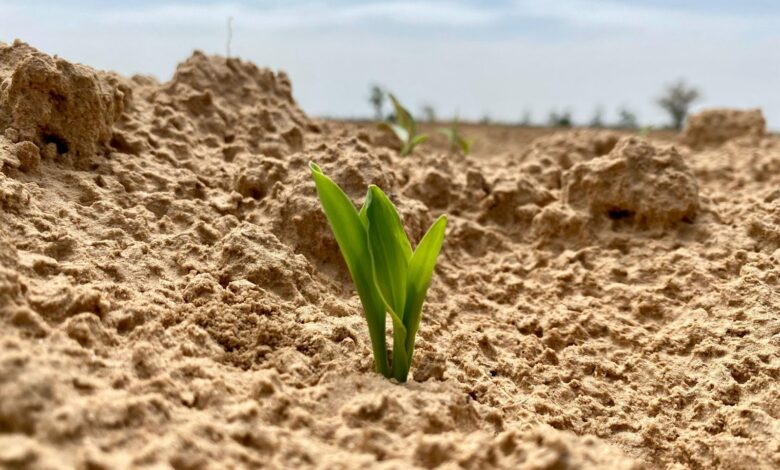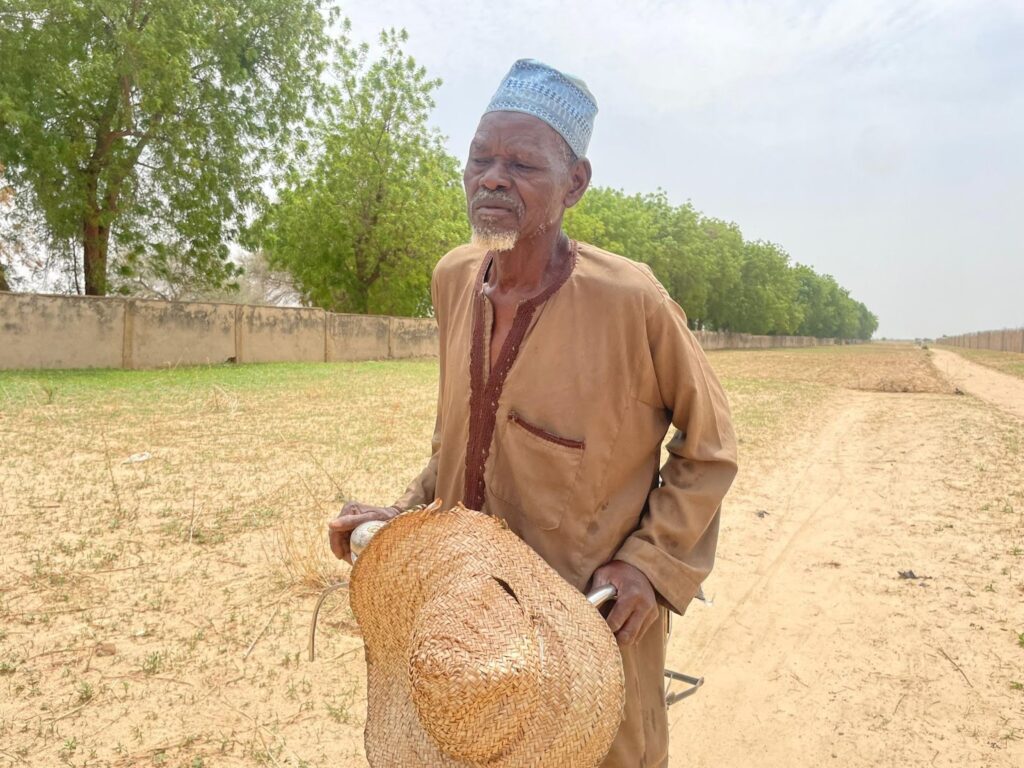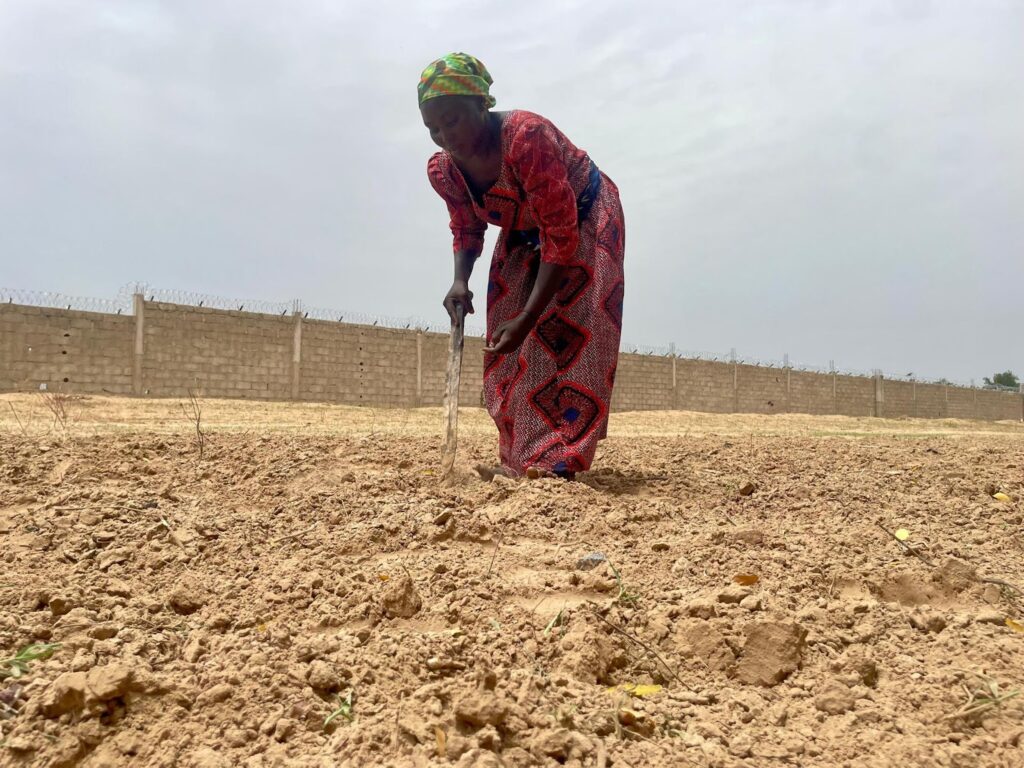Delayed Rainfall, Soaring Cost Of Seeds: The Nightmares Of Local Farmers In Borno
As the calendar flips to the end of June, farm fields that should be lush and green with sprouting crops remain barren in many farming communities across Borno, as a result of disturbing delays of rainfall and soaring cost of farm seeds.

He has worked all his life as a farmer, ploughing the earth to harvest crops yearly. Abba Isa, 75, now faces an agricultural crisis in the Gwange community of Borno, North East Nigeria.
At this time last year, many farm fields across communities in the state had flourished enough for harvest. It is a different experience this year; due to climate change, unpredictable weather patterns have disrupted the planting cycle, leaving farmers anxious and uncertain about cultivations and harvests.
Abba, whose family’s sustenance depends on sowing groundnuts, millets, maize, and wheat, struggles to cope with the sudden change in the weather pattern. His family consumes 80 per cent of his harvests, while he sells off only 20 per cent.

“The prolonged dry season has delayed our planting period into late June,” Abba complained. “It has forced us to wait anxiously for the much-needed rain to begin any farming activities – from clearing to ploughing and planting. The one-month delay has caused considerable disruption to our farming activities, including harvest timelines.”
Like Abba and most farmers in Borno, Amina Shuaibu, 45, a subsistence farmer in the Gwoza area of the state, shares similar concerns. Last year, her planted maize and millet had germinated around this time, but irregular rainfall has distorted her plans.
“It’s hard to predict what will happen next; we’re at the mercy of the weather, and this year, it has not been kind,” she said.

Some local farmers HumAngle interviewed complained that apart from delayed rainfall, inflation has also significantly impacted the cost of agricultural goods and services, compounding their existing challenge with climate change. They said the soaring prices of seeds, fertilizers, and other essential farming inputs have made it increasingly difficult to sustain their livelihoods.
“The price of seeds has doubled since last year. Before now, we could afford to buy enough for the whole planting season. With the prices so high, we have to cut back. It’s a huge strain on our finances,” said Fatima, a local farmer in the state. Other farmers we spoke to, including Ruth Moses, a 52-year-old farmer, re-echoed Fatima’s claim.
Abba also spoke to HumAngle about the soaring cost of seeds. He lamented that, for instance, the 1.5kg of groundnut seeds now costs ₦5000, instead of ₦2,500. “This year, everything has doubled its price,” he said.
The 100 per cent increase in the cost of seeds has strained their financial resources, making it hard to plan and execute their farming activities. The economic hardship and unpredictable weather patterns have left many farmers in dire situations.
Ibrahim Umar, a climate activist and lecturer at the Department of Geography, Borno State University, observed that the delayed onset of rainfall in the state this year is a matter of concern as it directly impacts agricultural timing and productivity.
“This shift in the rainfall pattern is likely due to broader climatic changes; it is not only affecting the seasonal calendar but also the livelihoods dependent on timely rains. These delays can result in shortened growing seasons, causing stress to crops and potentially reducing yields,” Ibrahim told HumAngle.
He advised that “local farmers and agricultural planners must consider adaptive strategies, such as adjusting planting schedules and utilizing drought-resistant crop varieties to alleviate the effects of these changing patterns.”
“Given the possibility of this trend persisting, it is essential to incorporate resilience into our agricultural practices,” he added.
Support Our Journalism
There are millions of ordinary people affected by conflict in Africa whose stories are missing in the mainstream media. HumAngle is determined to tell those challenging and under-reported stories, hoping that the people impacted by these conflicts will find the safety and security they deserve.
To ensure that we continue to provide public service coverage, we have a small favour to ask you. We want you to be part of our journalistic endeavour by contributing a token to us.
Your donation will further promote a robust, free, and independent media.
Donate HereStay Closer To The Stories That Matter




